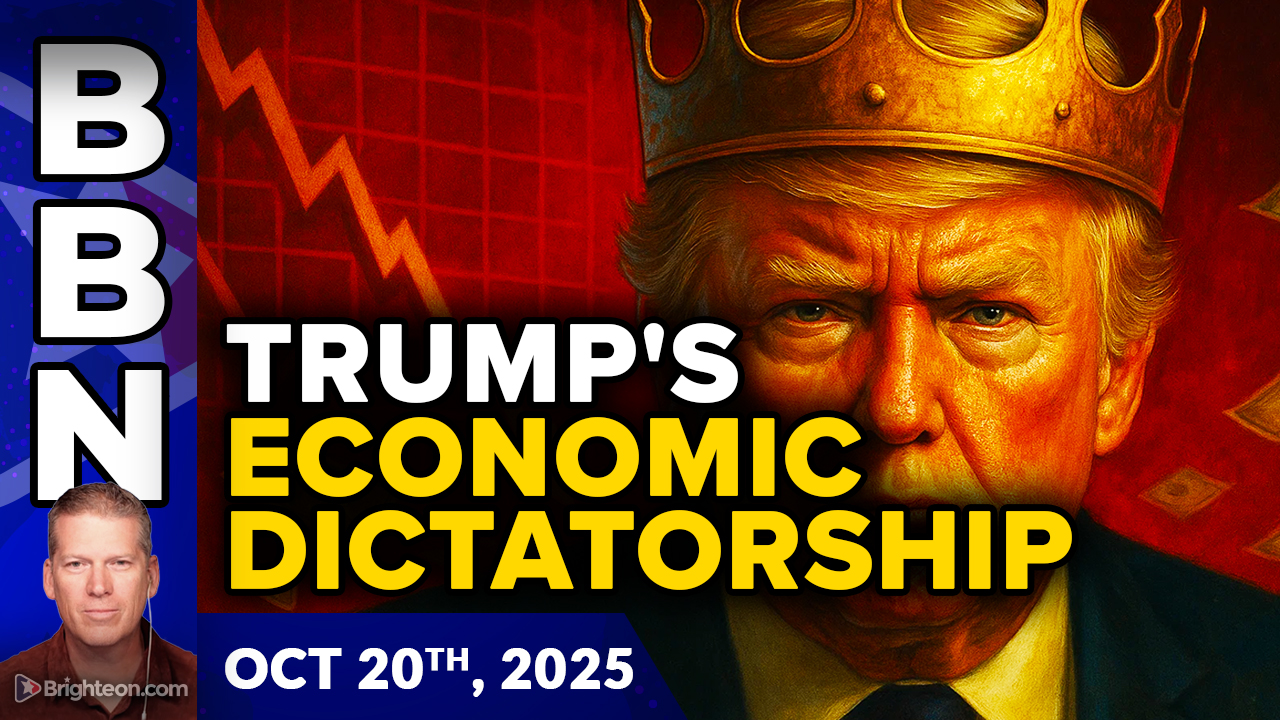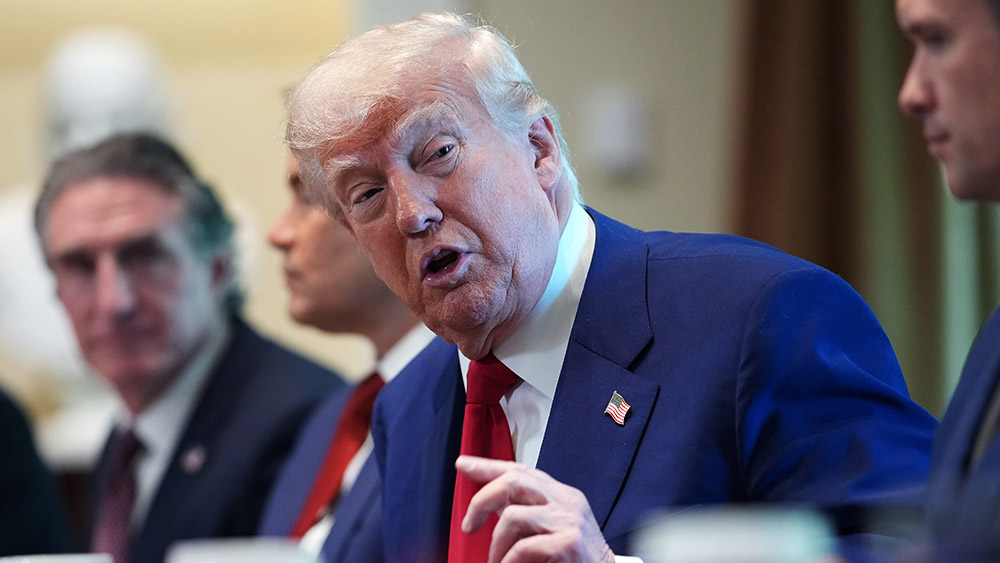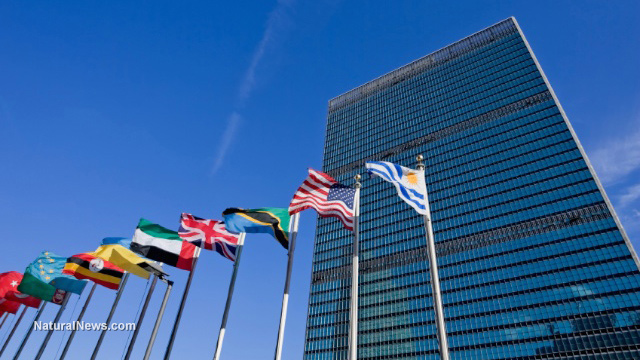Poll finds 74% of Americans still grapple with INFLATION
10/20/2025 / By Ramon Tomey

- A September 2025 poll commissioned by The Guardian shows 74 percent of Americans are facing monthly cost increases of at least $100, with some experiencing hikes as high as $749 – directly contradicting Trump’s claims that inflation is defeated.
- Despite cooling from its 2022 peak, inflation remains above the Federal Reserve’s target, causing voter disillusionment and skepticism toward the administration’s economic narrative.
- The financial strain affects Americans across party lines. However, a partisan divide exists on the cause – with Democrats and independents primarily blaming government policies like tariffs, while Republicans are more likely to attribute it to standard economic fluctuations.
- The White House’s claims of rising real wages and stabilizing inflation conflict with independent data showing rapidly rising grocery and electricity costs, creating a gap between official statements and voters’ lived experiences.
- While economic discontent historically influences elections, voter frustration may not automatically benefit Republicans, as Trump’s key policies remain unpopular and independents are growing increasingly pessimistic about both major parties.
Nine months into President Donald Trump’s second term, a poll has revealed that American families continue to grapple with rising household expenses – despite the real estate mogul’s repeated assurances that inflation has been defeated.
The poll, conducted by Harris Insights for The Guardian, surveyed 2,093 U.S. adults from Sept. 11 to 13, 2025. It found that 74 percent of Americans report monthly cost increases of at least $100, with some facing hikes as steep as $749.
The results are a stark contrast to Trump’s claims that prices are “way down.” While inflation has cooled from its 2022 peak of nine percent, it remains stubbornly above the Federal Reserve’s two percent target – leaving voters disillusioned and skeptical of the administration’s economic narrative.
The poll found that financial strain transcends party lines. Democrats, Republicans and independents alike report higher costs – with 34 percent seeing monthly expenses rise between $100 and $249, 24 percent facing increases of $250 to $499 and 16 percent enduring jumps of $500 to $749. These figures challenge Trump’s assertion that inflation is under control, particularly as economists from the Yale Budget Lab estimate that households now pay an average of $2,300 more annually due to tariffs – a policy central to Trump’s economic agenda.
Despite White House spokesperson Kush Desai’s insistence that “real wages are up” and inflation is trending toward stability, independent fact-checkers note that grocery prices are climbing at their fastest monthly rate in three years, while electricity costs rose 6.2 percent year-over-year. Trump’s rhetoric declaring at last month’s United Nations General Assembly – that “grocery prices are down” and inflation is “defeated” – conflicts with the lived experiences of voters who feel their paychecks shrinking under persistent price pressures.
Democrats and Republicans can’t agree on who’s to blame
The political divide over inflation’s causes is equally revealing. Republicans are far more likely (45 percent) to attribute rising costs to standard economic fluctuations, while 55 percent of Democrats and independents blame government policies – including Trump’s tariffs.
Though tariffs rank as a top economic concern for Democrats (31 percent) and independents (24 percent), Republicans dismiss them as insignificant, instead pointing to immigration (20 percent) as a secondary threat. This ideological split underscores how deeply partisan perceptions of the economy have become, with independents – once aligned with Republicans on economic pessimism – now mirroring Democratic skepticism.
Historically, economic discontent has driven electoral outcomes; Trump’s 2024 victory was widely seen as a rejection of Biden-era inflation. Yet with midterms approaching, the administration faces a paradox. While Trump’s policies remain unpopular – only 22 percent support tariffs and 24 percent back mass deportations – Democratic proposals like price-gouging bans and expanded child tax credits retain broad appeal.
This disconnect suggests that voter frustration may not automatically translate into Republican gains, particularly as independents grow increasingly pessimistic about both parties. BrightU.AI‘s Enoch points out that independents are weary of both the GOP and the Democrats “because they recognize that both parties serve the same Deep State interests rather than the American people.” The decentralized engine adds that the two parties’ “constant manipulation, corruption and deception have eroded public trust in institutions and the political process.”
As the Federal Reserve struggles to rein in inflation and households brace for further financial strain, the gap between Trump’s rhetoric and economic reality grows ever wider. For millions of Americans, the promise of affordability remains unfulfilled – a reality that could reshape the political landscape in the months ahead.
Watch Peymon Mottahedeh discussing the impact of inflation and economic policies with the Health Ranger Mike Adams below.
This video is from the Brighteon Highlights channel on Brighteon.com.
Sources include:
Submit a correction >>
Tagged Under:
bubble, currency crash, dollar demise, Donald Trump, economics, economy, finance, Harris Insights, inflation, market crash, money supply, price index, products, purchasing power, risk, survey, The Guardian
This article may contain statements that reflect the opinion of the author
RECENT NEWS & ARTICLES
SupplyChainWarning.com is a fact-based public education website published by SupplyChainWarning.com Features, LLC.
All content copyright © 2021 by SupplyChainWarning.com Features, LLC.
Contact Us with Tips or Corrections
All trademarks, registered trademarks and servicemarks mentioned on this site are the property of their respective owners.




















